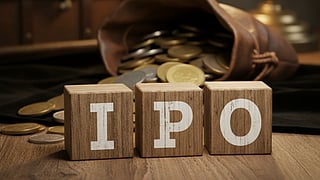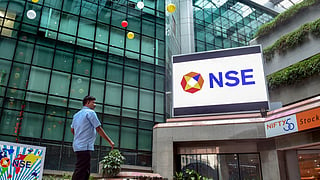Dear Readers,
This week was marked by some key geopolitical noise, some large corporate announcements, including investments and withdrawals, and results looking mixed in most markets. Geopolitics was full of reports around global leaders voicing displeasure around Israel actions, and Israel itself apparently preparing to strike Iran, which led to an uptick in oil prices. Inbound shipments to the Port of Los Angeles—America’s busiest container hub—dropped as much as 30% in early May as Trump’s tariffs discouraged trade. And due to all this and maybe more, Jamie Dimon chimed in with saying that the odds of stagflation in the US economy are roughly double of what the market thinks. Elon Musk committed to the Tesla CEO role and plans of a political pullback. Profits of luxury brand Chanel tumbled, as the downturn in the luxury industry hits sales.
For news in India, Adani Group and Reliance Industries have pledged substantial investments in India's North East region, with Reliance committing Rs 75,000 crore and Adani Group committing to an investment of Rs 50,000 crore. Apple is going to expand in India through a $1.5 billion Foxconn plant, despite Donald Trump's nudge to shift production to the US. And the results season has gone ahead well thus far. Maybe the earnings pessimism will lift soon. And maybe that’s why the mood lifted on Friday, after a dull week. Mixed hues for sure.
Here are the key talking points for the week:
Greenback Blues
Tim Baker at Deutsche Bank is warning that the US dollar might take a bigger hit if folks keep worrying about the government's money situation. The dollar already got clobbered pretty hard when Moody's first downgraded the US. A Bloomberg tracker for the dollar is actually down almost 1% this week, and it's dropped more than 7% so far this year—that's its worst start to a year since they started tracking this stuff back in 2005. Of course, not everyone agrees. Jenny Johnson from Franklin Templeton chimed in about how investors feel about President Trump. She said markets are actually getting more comfortable with what he's doing. She still thinks Treasuries are the safest bet when it comes to investments, even with Moody's knocking the country's credit rating down a peg.
Global Yields Are Red Hot, Bond Markets Are Not
US 30-year Treasury yields shot up to 5.09% and the 10-year went over the 4.6% mark as a new GOP bill made folks even more worried about the deficit. Meanwhile, UK inflation jumped to 3.5% in April, thanks to soaring household bills. It seems Wall Street and the bond market gurus are less hung up on the political back-and-forth in Washington and more focussed on what's likely to happen: a bill that tries to keep Trump, the GOP base, and their rich backers happy, but will just pile even more crushing debt onto government finances that some already see as a ticking time bomb. Investor confidence in Treasuries took another hit on Wednesday, after getting roughed up when Moody's stripped the US of its top credit rating. A recent auction of 20-year bonds got surprisingly weak demand, pushing benchmark 30-year rates back over 5% and to their highest point since late 2023. As Gavekal Research points out, it's been a rough ten years for fixed-income investors in developed countries, with all major bond markets now showing negative returns, both before and after accounting for currency changes.
Is It Amber? Or Red Already?
The US House has passed Trump's "One Big, Beautiful Bill," a core domestic policy initiative that could significantly impact India. For the power sector, while it phases out some clean energy tax credits, the 45X manufacturing credit's validity until 2031 offers some relief for companies like Waaree Energies, though stricter "Foreign Entity of Concern" compliance might limit US export opportunities. In the auto sector, tax relief on car loan interest aims to boost US sales, which could benefit Indian auto component makers like Tata Motors, Bharat Forge, and Motherson Sumi. The IT sector might see increased demand for services due to extended corporate tax cuts stimulating US economic activity, and a temporary reinstatement of R&D tax deductions until 2029.
Mixed Week For Results
IndusInd Bank reported a record quarterly loss of Rs 2,329 crore due to accounting irregularities and fraud, yet its stock rose 1.8% the day after this was declared. Brokerages have downgraded the stock citing governance and asset quality concerns. Meanwhile, IndusInd Bank will be replaced by Bharat Electronics Ltd. in the BSE Sensex effective June 23, 2025, as part of index rebalancing, with Trent joining and Nestle India being dropped. Nestle India may face outflows of $210 million, while Trent may receive inflows of $278 million. SEBI is also investigating IndusInd Bank's senior management for potential securities market violations related to a Rs 3,400-crore accounting fraud. There were results from Sun Pharmaceuticals and ITC, among others.
As we wrap, think of this data. In December 2013, the US 10-year Treasury yield was around 2.35% while India's 10-year bond yield was closer to 9%, resulting in a yield gap of about 6.65%. As of May 23, 2025, the US 10-year Treasury yield is approximately 4.52-4.54% and India's 10-year bond yield is around 6.22-6.25%, making the current yield gap roughly 1.69-1.73%. This indicates a significant narrowing of the yield gap over the last 11 years.
Until Next Time...
Niraj Shah
This week was marked by some key geopolitical noise, some large corporate announcements, including investments and withdrawals, and results looking mixed in most markets. Geopolitics was full of reports around global leaders voicing displeasure around Israel actions, and Israel itself apparently preparing to strike Iran, which led to an uptick in oil prices. Inbound shipments to the Port of Los Angeles—America’s busiest container hub—dropped as much as 30% in early May as Trump’s tariffs discouraged trade. And due to all this and maybe more, Jamie Dimon chimed in with saying that the odds of stagflation in the US economy are roughly double of what the market thinks. Elon Musk committed to the Tesla CEO role and plans of a political pullback. Profits of luxury brand Chanel tumbled, as the downturn in the luxury industry hits sales.
For news in India, Adani Group and Reliance Industries have pledged substantial investments in India's North East region, with Reliance committing Rs 75,000 crore and Adani Group committing to an investment of Rs 50,000 crore. Apple is going to expand in India through a $1.5 billion Foxconn plant, despite Donald Trump's nudge to shift production to the US. And the results season has gone ahead well thus far. Maybe the earnings pessimism will lift soon. And maybe that’s why the mood lifted on Friday, after a dull week. Mixed hues for sure.
Here are the key talking points for the week:
Greenback Blues
Tim Baker at Deutsche Bank is warning that the US dollar might take a bigger hit if folks keep worrying about the government's money situation. The dollar already got clobbered pretty hard when Moody's first downgraded the US. A Bloomberg tracker for the dollar is actually down almost 1% this week, and it's dropped more than 7% so far this year—that's its worst start to a year since they started tracking this stuff back in 2005. Of course, not everyone agrees. Jenny Johnson from Franklin Templeton chimed in about how investors feel about President Trump. She said markets are actually getting more comfortable with what he's doing. She still thinks Treasuries are the safest bet when it comes to investments, even with Moody's knocking the country's credit rating down a peg.
Global Yields Are Red Hot, Bond Markets Are Not
US 30-year Treasury yields shot up to 5.09% and the 10-year went over the 4.6% mark as a new GOP bill made folks even more worried about the deficit. Meanwhile, UK inflation jumped to 3.5% in April, thanks to soaring household bills. It seems Wall Street and the bond market gurus are less hung up on the political back-and-forth in Washington and more focussed on what's likely to happen: a bill that tries to keep Trump, the GOP base, and their rich backers happy, but will just pile even more crushing debt onto government finances that some already see as a ticking time bomb. Investor confidence in Treasuries took another hit on Wednesday, after getting roughed up when Moody's stripped the US of its top credit rating. A recent auction of 20-year bonds got surprisingly weak demand, pushing benchmark 30-year rates back over 5% and to their highest point since late 2023. As Gavekal Research points out, it's been a rough ten years for fixed-income investors in developed countries, with all major bond markets now showing negative returns, both before and after accounting for currency changes.
Is It Amber? Or Red Already?
The US House has passed Trump's "One Big, Beautiful Bill," a core domestic policy initiative that could significantly impact India. For the power sector, while it phases out some clean energy tax credits, the 45X manufacturing credit's validity until 2031 offers some relief for companies like Waaree Energies, though stricter "Foreign Entity of Concern" compliance might limit US export opportunities. In the auto sector, tax relief on car loan interest aims to boost US sales, which could benefit Indian auto component makers like Tata Motors, Bharat Forge, and Motherson Sumi. The IT sector might see increased demand for services due to extended corporate tax cuts stimulating US economic activity, and a temporary reinstatement of R&D tax deductions until 2029.
Mixed Week For Results
IndusInd Bank reported a record quarterly loss of Rs 2,329 crore due to accounting irregularities and fraud, yet its stock rose 1.8% the day after this was declared. Brokerages have downgraded the stock citing governance and asset quality concerns. Meanwhile, IndusInd Bank will be replaced by Bharat Electronics Ltd. in the BSE Sensex effective June 23, 2025, as part of index rebalancing, with Trent joining and Nestle India being dropped. Nestle India may face outflows of $210 million, while Trent may receive inflows of $278 million. SEBI is also investigating IndusInd Bank's senior management for potential securities market violations related to a Rs 3,400-crore accounting fraud. There were results from Sun Pharmaceuticals and ITC, among others.
As we wrap, think of this data. In December 2013, the US 10-year Treasury yield was around 2.35% while India's 10-year bond yield was closer to 9%, resulting in a yield gap of about 6.65%. As of May 23, 2025, the US 10-year Treasury yield is approximately 4.52-4.54% and India's 10-year bond yield is around 6.22-6.25%, making the current yield gap roughly 1.69-1.73%. This indicates a significant narrowing of the yield gap over the last 11 years.
Until Next Time...
Niraj Shah
Disclaimer: NDTV Profit is a subsidiary of AMG Media Networks Limited, an Adani Group Company.

 RECOMMENDED FOR YOU
RECOMMENDED FOR YOU

GST 2.0 In Effect, US Tariffs On Pharma, Accenture Q4 Earnings And More — The Week That Was
 Sep 26, 2025
Sep 26, 2025

GST Rate Cuts To Kick In, Over Two-Dozen IPOs, Piyush Goyal's US Visit And More — The Week Ahead
 Sep 21, 2025
Sep 21, 2025

Nifty In Technical Charts: The Tide Is Turning
 Sep 14, 2025
Sep 14, 2025

Trade Setup For Sept. 12: Nifty's Bullish Momentum Intact, Faces Immediate Resistance At 25,153
 Sep 11, 2025
Sep 11, 2025


